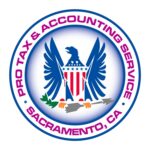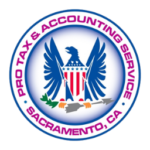Running a business often involves handling cash payments. But when those transactions go beyond a certain threshold, it’s crucial to understand your reporting responsibilities. Enter Form 8300, a key document in the fight against money laundering and other financial crimes.
Who Must File?
If you operate a trade or business and receive more than $10,000 in cash in a single transaction or through related transactions, you’re obligated to file Form 8300. This applies to individuals, companies, corporations, partnerships, associations, trusts, and even estates.
Filing Requirements:
The form must be filed electronically with the Financial Crimes Enforcement Network (FinCEN) or on paper with the IRS within 15 days of the cash transaction. Importantly, this rule applies regardless of location, as long as the transaction occurs within the 50 states, District of Columbia, or U.S. possessions and territories.
Beyond Filing: Transparency and Penalties:
Filing Form 8300 isn’t the only obligation. By January 31st of the following year, you must provide a written statement to each party named on the form. This statement should include your business information, the total reportable cash amount, and confirmation that you reported the transaction to the IRS. Failure to provide this statement carries potential penalties.
Electronic Filing Mandate:
Starting January 1, 2024, if you’re already required to electronically file other information returns like Forms 1099 or W-2, filing Form 8300 electronically becomes mandatory. However, if you file less than 10 total information returns (excluding Forms 8300), paper filing remains an option. Remember, regardless of the requirement, electronic filing is always an available choice.
Exceptions and Waivers:
Certain situations warrant exceptions or waivers to the electronic filing requirement. If your religious beliefs conflict with e-filing technology, you’re automatically exempt. Similarly, businesses filing less than 10 total information returns are exempt. For other cases of undue hardship, you can request a waiver from the IRS on Form 8508.
Penalties and Late Filing:
Failure to comply with the rules can lead to penalties. Paper filing when electronic filing is mandatory, filing late without a valid reason, and omitting the required written statement to named parties can all incur financial consequences.
Recordkeeping:
Remember, maintaining a copy of each filed Form 8300 for five years is essential. When e-filing, store a saved copy instead of relying solely on confirmation receipts.
Navigating Form 8300:
While the filing process might seem complex, understanding your obligations and available options helps ensure compliance and contributes to the fight against financial crime. Remember, resources like the IRS website and professional guidance can further ease the process.
By keeping informed and acting responsibly, you can navigate Form 8300 with confidence and maintain good standing with the authorities.





